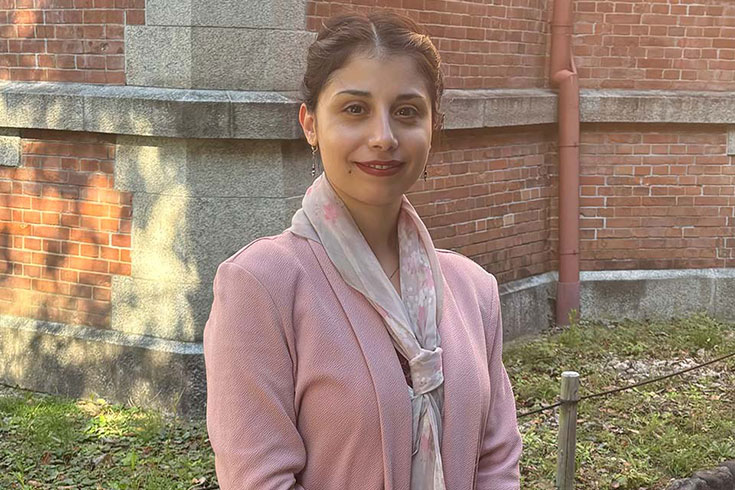Doctorate in Near Eastern and Judaic Studies (PhD)
The Department of Near Eastern and Judaic Studies encompasses the study of Judaism as well as the neighboring cultures of Christianity and Islam with which it has interacted in Ancient, Medieval and modern times.
The PhD degree in Near Eastern and Judaic Studies (NEJS) is designed to train scholars and teachers in various areas of NEJS. Doctoral students can take advantage of a wide range of intellectual resources available to them while specializing in:
- Hebrew Bible and the Ancient Near East
- Ancient and Medieval Jewish, Christian, and Islamic Studies
- Jewish history, culture, and religion through the modern period, including the study of Israel
Requirements for the PhD Program
Why Brandeis?
The intellectual hallmarks of the NEJS doctoral program include the following:
- Rigorous study of texts and languages.
- Critical attention to cross-cultural influences (e.g., between and among Judaism, Christianity and Islam).
- Diversity of methodologies and scholarly frameworks, including religious studies, gender studies, disability studies, legal studies, social history, intellectual history, the study of material culture, the study of literature, and more.
- Students specializing in one area of focus also take courses in other areas.
A Wealth of Resources
At Brandeis, doctoral students in NEJS benefit from an extraordinary wealth of intellectual resources.
- Dedicated language instruction in three languages — Hebrew, Arabic and Yiddish — with opportunities to pursue more specialized instruction as well (e.g., Biblical Hebrew, Aramaic, and Judeo-Arabic).
- Unparalleled breadth of expertise, from the earliest texts of the Ancient Near East, through early Jewish, Christian and Islamic cultures, through the Medieval Mediterranean world, to modern and contemporary Jewish history and culture in Europe, America, the Middle East, and Israel.
- A robust set of research centers and initiatives, each with a specialized focus, that provide scholarly sub-communities, research assistantships, research support, and complementary learning opportunities in areas such as the study of Israel, the study of gender and Judaism, and more.
- Research centers and initiatives include: the Cohen Center for Modern Jewish Studies, the Crown Center for Middle East Studies, the Hadassah-Brandeis Institute, the Mandel Center for Studies in Jewish Education, the Mandel Center for the Humanities, the Schusterman Institute for Israel Studies, the Tauber Institute, among others.
- Deep partnerships with several departments at Brandeis, including the Department of Classics and Early Mediterranean Studies; Education Program; Department of History; Department of Women’s, Gender, and Sexuality Studies; Religious Studies Program; and Department of Philosophy.
Careers and Alumni
Graduates of the doctoral program are some of the most prominent contemporary scholars in their fields. Graduates also go on to distinguished careers in publishing, museums, secondary education, advocacy and other non-profit work, and defense and intelligence agencies.
“The NEJS department has provided an intellectually challenging, supportive environment in which to pursue my doctoral studies. My adviser and other faculty members have been more than generous with their time and knowledge. They have challenged me to deepen my knowledge, pursue new areas of interest, and maintain the highest academic standards. My fellow graduate students have created a cooperative, intellectually stimulating atmosphere in which we share our research and support each other as we make our way through the program.”
NEJS PhD Candidate
Alumni Spotlight

Shirah Malka Cohen, PhD ‘23, has transformed her dissertation into a book, “Music in Modern Japanese and Hebrew Literatures: Weaving Sounds Into Words,” which was published as part of the Routledge Studies in Twentieth-Century Literature series. She joined GSAS to talk about the journey from dissertation to first book.
